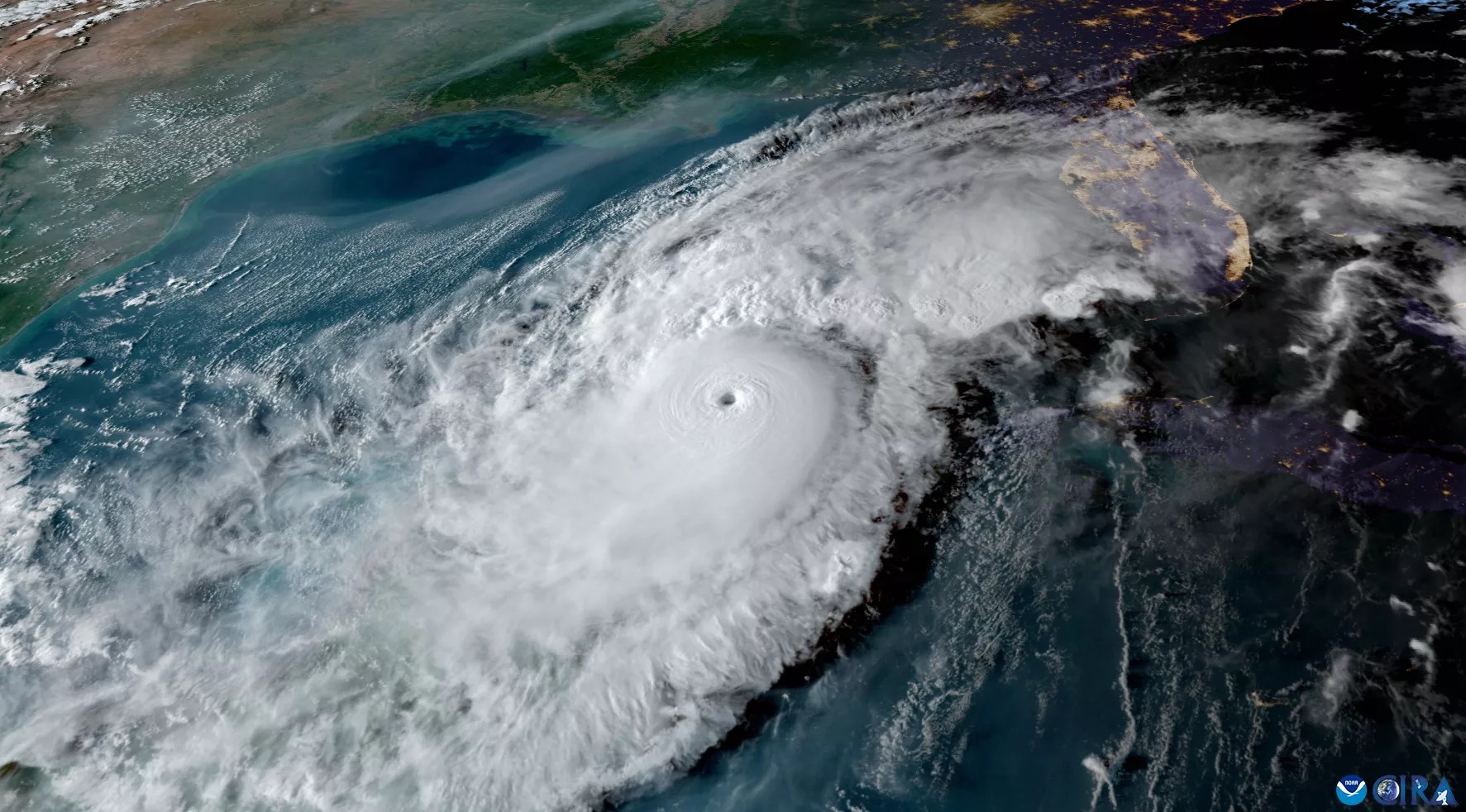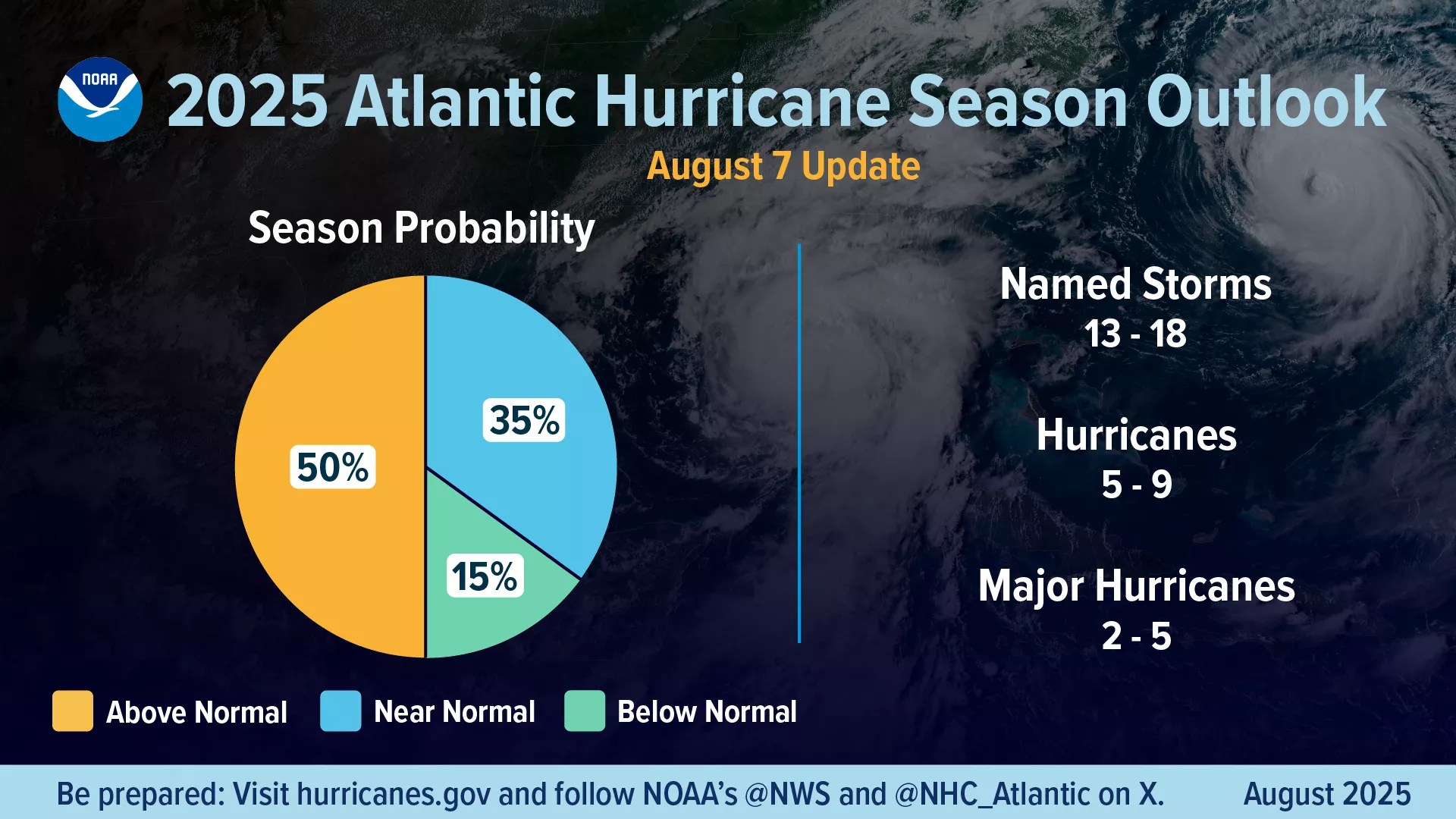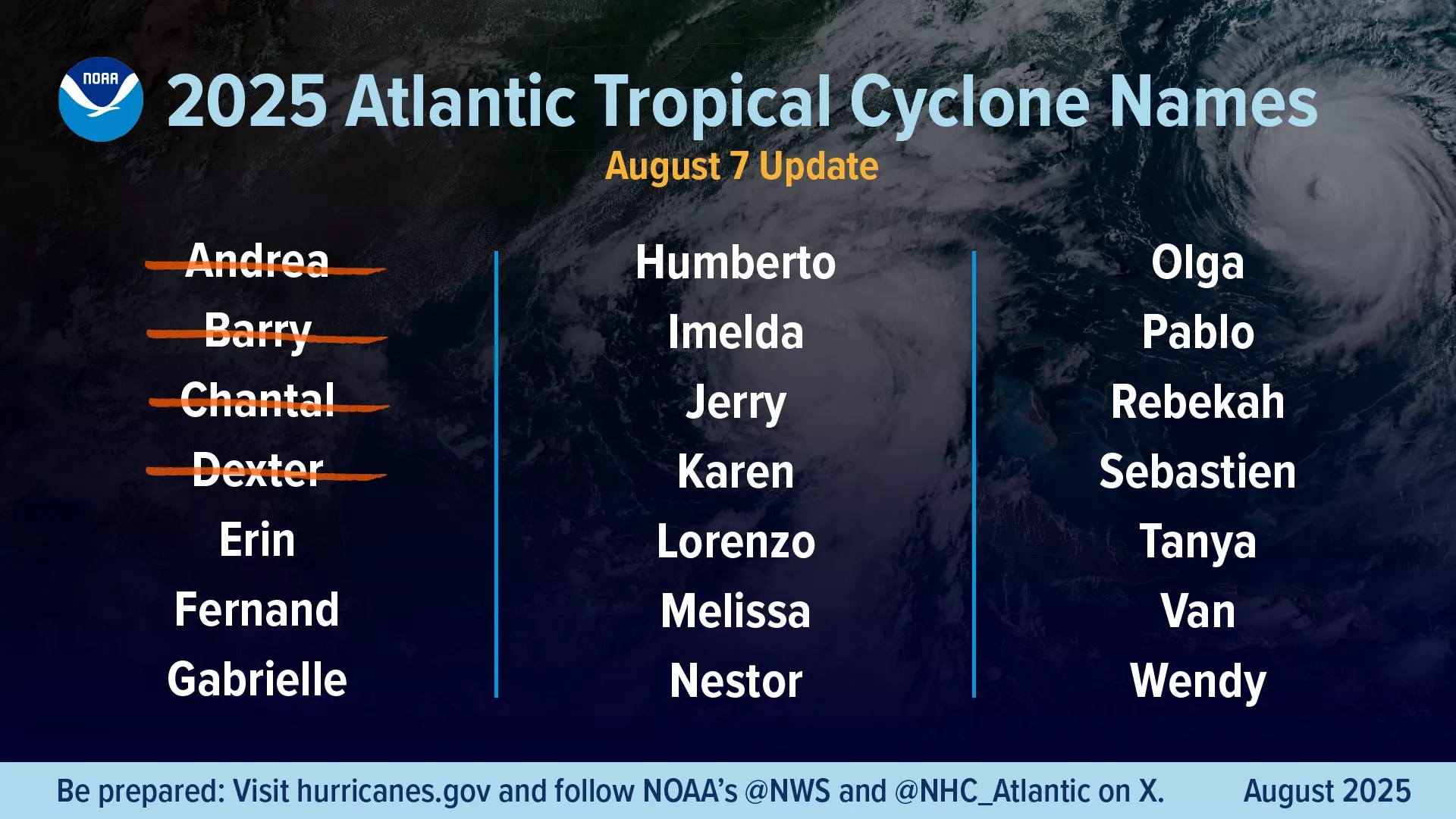
Photo by the National Oceanic and Atmospheric Administration (NOAA)

Audio By Carbonatix
Weather forecasters are still expecting another above-normal hurricane season.
Back in May, the National Oceanic and Atmospheric Administration (NOAA) released its 2025 Atlantic hurricane season outlook, which predicted a 60 percent chance of an above-normal season. The agency forecasted anywhere from 13 to 19 named storms, with six to ten becoming hurricanes. The forecast also anticipated three to five major Category 3 or higher hurricanes.
“As we witnessed last year with significant inland flooding from hurricanes Helene and Debby, the impacts of hurricanes can reach far beyond coastal communities,” acting NOAA administrator Laura Grimm said in a press release regarding the 2025 Atlantic hurricane season.
NOAA expected the 2025 hurricane season, which runs from June 1 to November 30, to be above normal given the warmer-than-average ocean temperatures, forecasted weak wind shear, and the potential for higher activity from the West African monsoon. The forecast added that the Atlantic Basin would experience high activity, thanks to the ocean’s high heat content and reduced trade winds, which fuel storm development.
Now, more than two months into this year’s season, forecasters say their predictions remain on track.
“Many of the factors we identified ahead of the season are still at play, and conditions are largely tracking along with our May predictions,” Matt Rosencrans, lead hurricane season forecaster at NOAA’s National Centers for Environmental Prediction, said in the press release.
So far this season, just four named tropical storms and no hurricanes have formed. Forecasters updated the number of expected named storms to 13 to 18, of which five to nine could become hurricanes. They predict two to five major hurricanes with winds of at least 111 miles per hour. The outlook notes that the updated figures take into account the four tropical storms that have already formed.

An infographic showing hurricane season probability and numbers of named storms predicted, according to NOAA’s 2025 Atlantic Hurricane Season Outlook.
Graphic by NOAA
Last year, NOAA issued its highest-ever May forecast for named storms, hurricanes, and major hurricanes. The agency predicted a significantly above normal season, with anywhere from 17 to 25 total storms, four to seven of which it predicted would become Category 3 or higher hurricanes.
This season, Brian McNoldy, a senior research associate at the University of Miami’s Rosenstiel School of Marine, Atmospheric, and Earth Science, tells New Times that environmental factors in the basin support an above-average season, but they are “nothing like what they were last year at this time.” However, he emphasizes that Floridians should be prepared for hurricane season, regardless of the outlook.
“Treat every season the same,” he says. “Do your pre-season preparations and checklists, then deal with specific threats when and if they come.”
Last year’s hurricane season produced 18 named storms. Eleven became hurricanes, and five strengthened to major hurricanes, though none hit South Florida. During the brutal season, three hurricanes, including Category 4 Helene and Category 3 Milton, made landfall in Florida. Hurricane Beryl was the earliest Category 5 hurricane ever recorded in the Atlantic, reaching its intensity on July 1, 2024.
In its March 2025 report, the National Hurricane Center concluded that Hurricane Helene, which made landfall in the Florida Big Bend region, resulted in at least 250 fatalities, making it the deadliest hurricane in the contiguous United States since Katrina in 2005.

The 2025 list of Atlantic hurricane names chosen by the World Meteorological Organization.
Graphic by NOAA NWS
NOAA employees have had to navigate this hurricane season amid the Trump administration’s staffing and budget cuts. Earlier this month, five former directors of the National Weather Service (NWS) warned in an open letter that the agency’s ongoing staffing cuts could lead to “needless loss of life.”
The Trump administration proposed a $1.52 billion budget cut, fueling fears of less accurate forecasts. Meanwhile, hurricanes have become more intense and more devastating thanks to climate change, not government manipulation, as conspiracy theorists like Rep. Marjorie Taylor Greene surmise.
However, earlier this week, NWS and NOAA got approval to hire 450 meteorologists, hydrologists, and radar technicians – roles the Department of Government Efficiency (DOGE) had eliminated in the spring as part of the administration’s cost-cutting.